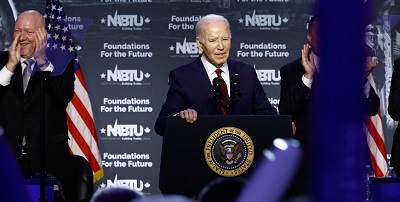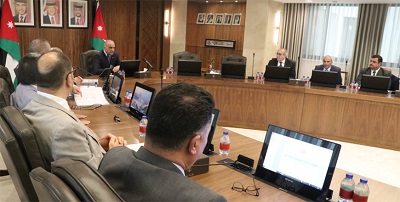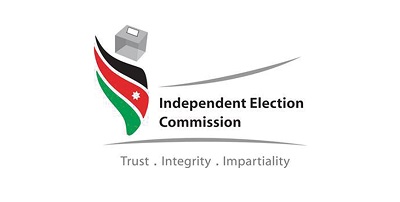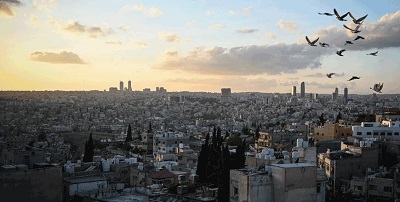Bread and Personal Freedoms - By Amel Moussa, Alarabiya
This Tuesday happens to be Human Rights Day. As we know, in principle and theory, almost everyone defends human rights, in practice, however, not as often.
We would like to approach this occasion by contemplating the status of human rights in the Arab and Islamic world, admitting from the outset that it differs from one country to another.
It is worth noting that the issue of human rights involves themes of the rights-based intellectual modernity dating back to the era of the French revolution and the moral and intellectual dimension that it represented. It is a fruit of modernity that was spread by the achievements of the scientific movement during the industrial revolution in England.
Therefore, the first stage of modern thought on human rights was specifically focused on what is called in law public freedoms. The world has yet to move to the struggle for personal freedoms. Of course, there is a structured relationship between public freedoms and personal freedoms, in that public freedoms pave the way for personal freedoms.
What we notice is that struggles for human rights are in conflict with the hegemony of institutions to achieve a better status for the individual and to limit its determinism and authority that renders every individual dependent on it. The term for such an individual in sociology is ‘social agent’.
Moving from a sociological discourse of social agent to social actor, and what changes that entailed in the relationship between the individual and social institutions, cannot be seen as an accomplishment already achieved, but as a process in itself that has several stages.
In our societies, we are still in the phase of defending a better status for the individual and searching for means to reduce the domination of institutions. This has coincided with attempts to consecrate public freedoms, the freedoms of groups, the basic unit of which being the individual. In other words, the idea that the individual is the primary social actor in its basic unit needs time to infiltrate mentalities and practices. I think, nevertheless, that strides have been made in that regard, despite all of the current shortcomings.
It would be unfair to marginalize the human rights movement that has been ongoing since the sixties in Arab countries and has gained more momentum in the last few years. It has become clear to everyone that the issue of human rights is inevitable and is the condition for international relations between the major powers and developing countries. In fact, trade deals and dealing with international monetary institutions have become conditioned on agreements on human rights and social and political development.
At the same time, however, and for the sake of being objective once again, we find that the human rights movement, especially the calls made by some figures among the Arab elite in terms of dedicatedly pursuing personal freedoms without limits, has stumbled on many obstacles.
It may seem at first that these hindrances against an honest discussion on personal freedoms are primarily cultural and are ultimately related to culture and the principle of cultural specificity. We would argue, however, that the importance of the cultural is less than it appears to be. The economic problems and hindrances to development in the majority of Arab and Islamic countries are what rendered the human rights struggle laden with difficulties and met with indifference.
What place is there for calling for personal freedoms while people are suffering from extreme poverty and unemployment?
Despite the importance of calls for human rights, the insistence of some intellectuals on personal freedoms and their focus on culturally shocking rights has created some distance between them and the frustrated youth suffering from economic violence and limited opportunities. This focus on issues that seem to the unemployed and impoverished as luxuries, rather than motivating discussion and dialogue is actually provocative.
Consequently, we think that bread stands as a real barrier against the development of a culture of freedoms in our countries and a critique of a valuable critique of our culture. This clearly means that any enlightenment in the domain of freedoms and cultural critique will have a short reach or will be rejected as long as our countries do not find a path towards economic development.
The hungry do not listen, the frustrated do not get excited, and the marginalized do not care. All that they want is to object. Therefore, the solution to the problem of bread and its modern equivalents that allow for a dignified life is a central condition for any projects for cultural change and Arab human rights by whoever advocates it.
This material analysis may be validly contested by many. Still, experience enriches thought and makes its bearers aware of strategies that could help relay ideas without necessarily ceasing to struggle for them.
Latest News
 'Sinwar Above Ground': Hamas official's revelation shocks Israeli Occupation
'Sinwar Above Ground': Hamas official's revelation shocks Israeli Occupation US president signs bill to provide new aid for Ukraine
US president signs bill to provide new aid for Ukraine Prime minister directs government to support IEC ahead of upcoming elections
Prime minister directs government to support IEC ahead of upcoming elections Parliamentary elections for 20th Lower House to be held on September 10 – IEC
Parliamentary elections for 20th Lower House to be held on September 10 – IEC Amman Chamber of Commerce says GDP grows by 4.4% in 2023
Amman Chamber of Commerce says GDP grows by 4.4% in 2023
Most Read Articles
- More than 100 arrested at US university pro-Palestinian protests
- King, French president discuss regional developments
- Irish foreign minister visits Palestinian refugee camp in Amman, vows support to UNRWA
- Senior Hamas official says movement is “awaiting response” in ceasefire negotiations
- Jordan remembers Queen Zein
- Ahead of feared Rafah invasion, Palestinians mourn bombardment dead
- US says downed Houthi anti-ship missile, four drones
- JAF carries out six more airdrops of aid into Gaza
- Cassation Court upholds over 3-year sentence for drug dealer
- Hizbollah denies Israel claim it killed half of commanders in south